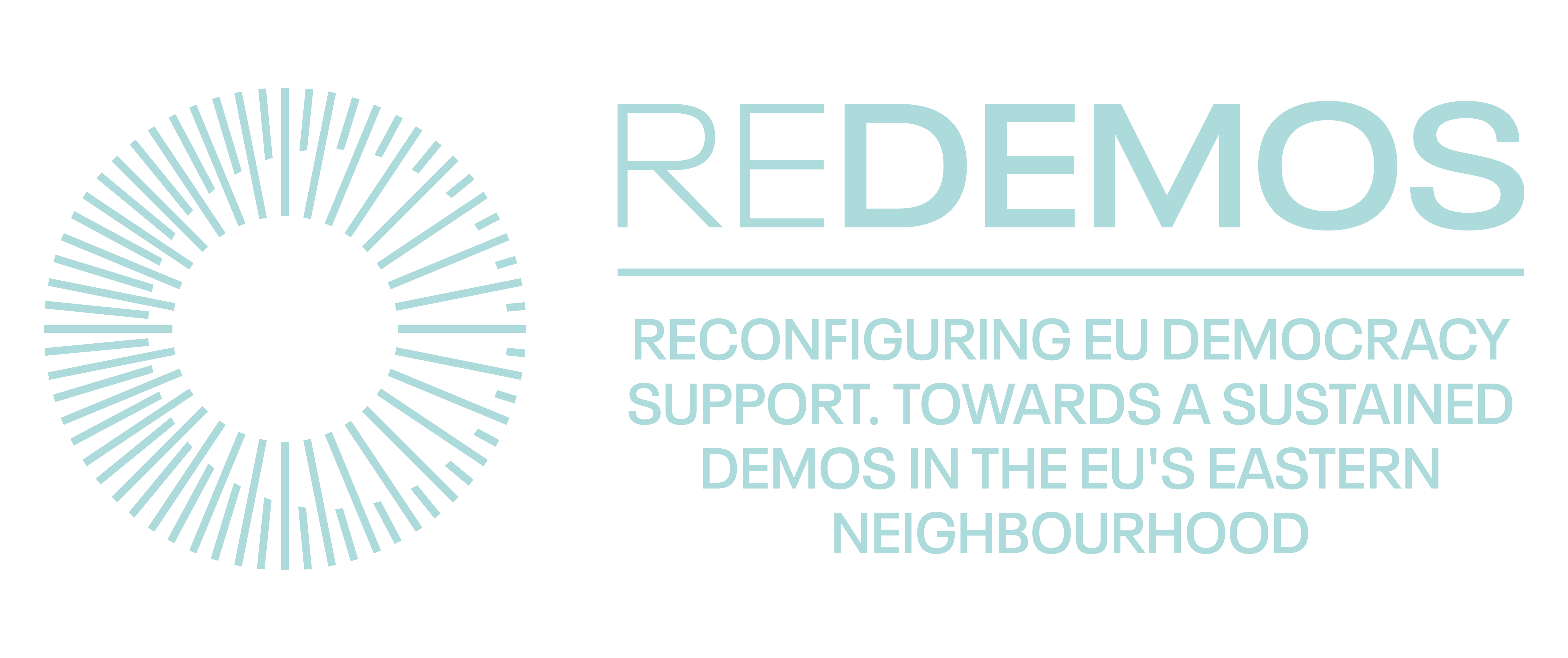REDEMOS is divided into three distinct stages, each of which is designed to build upon the findings and insights of the previous stage.
- Stage 1. Retrospective Scrutiny:
The first stage of the project will engage in a retrospective scrutiny of EU and EU Member States’ democracy support efforts in the EU’s eastern neighbourhood over the past decade, as well as of the six countries’ individual discreet efforts at democratization. In this step, we- map past and current EU and EU Member States’ strategies, policy instruments and corresponding mechanisms;
- identify international and EU funding for democracy support in the eastern neighbourhood by producing a comprehensive and comparable dataset of the scope and depth of the EU’s democracy aid; and
- take stock of democracy building efforts in the six countries of the eastern neighbourhood in a comparable manner.
- Stage 2. Contemporary Analysis:
The second phase of REDEMOS aims to provide enhanced clarity on the EU’s current role and future aspirations in supporting democracy in the eastern neighbourhood, and on the eastern neighbours’ democracy building achievements and failures. We seek to- critically examine the EU’s ‘actual role’ in promoting democracy within and across the six countries in light of domestic conditions and dynamics, and third country actors’ strategies and instruments;
- explore and examine the multi-layered success factors and barriers – and their interlinkages – encountered by eastern neighbourhood countries in their democratization efforts, on the political, institutional, socio-economic, cultural and security level by developing and juxtaposing these against measurable scoping indicators and benchmarks;
- gain insights into the discourses, narratives and perceptions of EU democracy support within and across EU institutions and the eastern neighbourhood.
- Stage 3. Policy Co-Design and Future-Proofing Neighbourhood Democracy:
The final stage of REDEMOS proposes a new and improved policy toolkit which- draws lessons from the outcomes of past actions,
- assesses the sustainability of current tools and,
- presents new tools that enable a permanent shift from passive democracy promotion to active and impactful democracy collaboration in the neighbourhood. This is achieved by
- engaging with decision-makers and the public in the EU-27 and the eastern neighbourhood countries in order to develop and formulate recommendations on how to reconfigure EU democracy support in a more inclusive, tailor-made and citizen-oriented way

